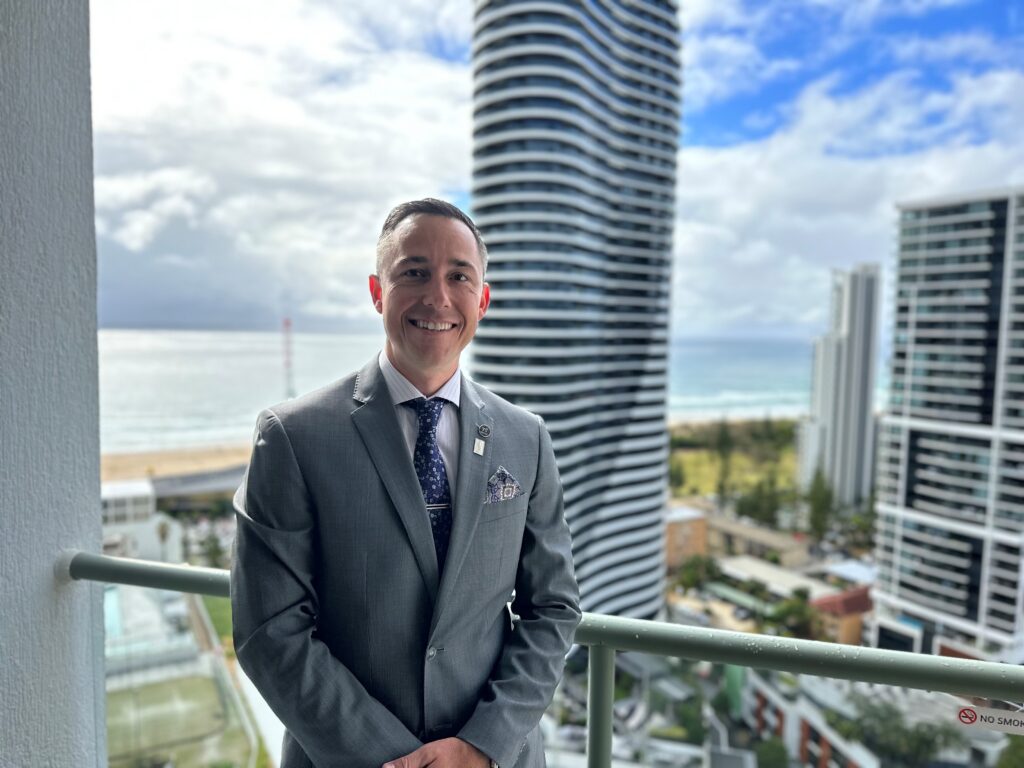Dr. Ryan Coster – making a global impact


Dr. Ryan Coster’s new role as the incoming Vice-President of the WFC, where he served as the Canadian board representative and Secretary/Treasurer, allows him to keep his eyes firmly on the future of global chiropractic.
Obtaining his doctorate in chiropractic at Sydney, Australia’s Macquarie University, he graduated at the top of his class as summa cum laude.
He was drawn to Macquarie’s integrated care model, and notes, “We trained in their program alongside a variety of medical professionals and were exposed to other medical disciplines, particularly when studying anatomy, so it was a truly collaborative model of learning. “
As a result, he now has a fully interprofessional practice located in Moncton, New Brunswick. “I talk the talk, and walk the walk.” Dr. Coster says he has built one of the largest multidisciplinary clinics in the province. “I see it as working effectively for the musculoskeletal health of all New Brunswickers, and establishing chiropractors as team players when it comes to interprofessional collaboration.”
In addition to his recent election to the WFC executive, Dr. Coster has served on the board of directors for Chiropractic Australia, been a member of Sports Medicine Australia, and has been the President of the New Brunswick Chiropractors Association since 2018. In 2022, he received the prestigious Queen Elizabeth II Platinum Jubilee Medal for outstanding service in the field of healthcare, and was awarded the 2024 CCA Public Service Award for exceptional advocacy efforts for the chiropractic profession in Canada.
Dr Coster has a clear vision for the future of chiropractic care. “As a profession, we need to be moving towards being truly EPIC: evidence-based, people-centered, interprofessional and collaborative, and my favourite part of that is the ‘C’. If we want to move forward, we need to better leverage other healthcare professionals and nurture relationship building to advance healthcare as a whole.”
He believes that integrative care means being focused on collaborative care. “Siloed healthcare is outdated and belongs in the dark ages.” He continues, describing his own practice, “Healthcare professionals don’t all have to be working in the same office, but having chiropractors, massage therapists, family doctors, radiologists, physiotherapists, and kinesiologists etc. working together makes it easier to put the patient at the centre of attention.”
Dr Coster urges chiropractic leaders to identify and navigate potential roadblocks to progress, such as outdated clinical methodology and encouraging regulators to lobby governments that enable chiropractors to practice within their full scope “because often times there is unnecessary red tape, so to speak, restricting us from moving into truly collaborative care that is best for the patient.”
He also urges chiropractors to think globally. “Some healthcare models do it better than others. We should be looking at pilot programs and other collaborative care programs being offered in other countries or jurisdictions.”
In relation to government lobbying and stakeholder relations, he states: “It’s critical that chiropractors are always involved in high-level healthcare discussions, because if you’re not sitting at the table, you’re probably on the menu.”
He continued, “I want to focus on facilitating knowledge sharing between nations because the success of chiropractic in Canada, for example, could assist other countries in need. For example, in Canada we are fortunate to have excellent guidelines thanks to the CCGI; which can be shared widely, and I think they would be readily accepted globally. It’s this kind of work that shows we’re truly collaborative and forward thinking, and that other countries don’t have to reinvent the wheel when it comes to advancing our profession.
He concludes, “My ultimate goal is contributing to advancing the chiropractic profession by promoting the EPIC model on a global scale, which enables a truly optimized people centered experience for those we serve.”